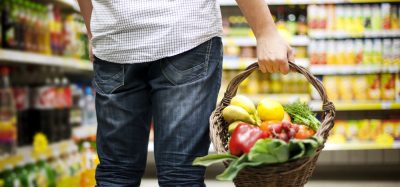BfR provides coronavirus food safety advice
- Like
- Digg
- Del
- Tumblr
- VKontakte
- Buffer
- Love This
- Odnoklassniki
- Meneame
- Blogger
- Amazon
- Yahoo Mail
- Gmail
- AOL
- Newsvine
- HackerNews
- Evernote
- MySpace
- Mail.ru
- Viadeo
- Line
- Comments
- Yummly
- SMS
- Viber
- Telegram
- Subscribe
- Skype
- Facebook Messenger
- Kakao
- LiveJournal
- Yammer
- Edgar
- Fintel
- Mix
- Instapaper
- Copy Link
Posted: 7 February 2020 | Sam Mehmet (New Food) | No comments yet
The German Federal Institute for Risk Assessment, a scientifically independent institution within the portfolio of the Federal Ministry of Food and Agriculture in Germany, has offered advice about the recent outbreak of coronavirus with regards to food imports and food consumption.


After the outbreak of respiratory disease caused by an infection with the new type of coronavirus (2019-nCoV), and the subsequent epidemic in various regions of China and now worldwide, the German Federal Institute for Risk Assessment (BfR) has provided advice about the virus and whether it can be transmitted to humans via food and other imported products. Against this background, the BfR has summarised the most important questions and answers on the topic:
Can imported food from regions where the disease has spread be sources of an infection in humans?
“Due to the transmission methods recorded thus far, and the relatively low environmental stability of coronaviruses, it is unlikely that imported goods such as imported foods or consumer goods may be sources of an infection with the new type of coronavirus, according to the current state of knowledge.”
How can people protect themselves and products from being infected by the virus via food?
“Although it is unlikely that the virus will be transmitted via contaminated food or imported products, general everyday hygiene rules, such as regular hand washing, and hygiene rules for food preparation should be observed when handling them. As the viruses are sensitive to heat, the risk of infection can also be further reduced by heating foods.”
Are there other possible transmission routes?
“There are currently no cases which have shown any evidence of humans being infected with the new type of coronavirus by another route, such as via the consumption of contaminated food. There are also no known reports for other coronaviruses about infections due to food or contact with dry surfaces. Transmission via surfaces which have recently been contaminated with viruses is, nonetheless, possible through smear infections. However, this is only likely to occur during a short period after contamination, due to the relatively low stability of coronaviruses in the environment.”
Can coronaviruses survive and remain infectious on fixed and dry surfaces, outside human or animal organisms?
“The stability of coronaviruses in the environment depends on several factors, such as temperature, air humidity and surface conditions, as well as the specific virus strains and the virus quantity. In general, human coronaviruses are not particularly stable on dry surfaces. Inactivation in dry conditions generally occurs within a period from a few hours to a few days. However, there is currently still no more specific data about the novel coronavirus (2019-nCoV).”
Can workers who deal with the further processing of semi-finished products, components or other prefabricated products imported from China, be infected by the new type of pathogen?
“Due to the low environmental stability of coronaviruses, a transmission of the pathogen via this method seems unlikely in most cases.”
Related topics
Food Safety, Health & Nutrition, Hygiene, Pathogens, Quality analysis & quality control (QA/QC), The consumer








